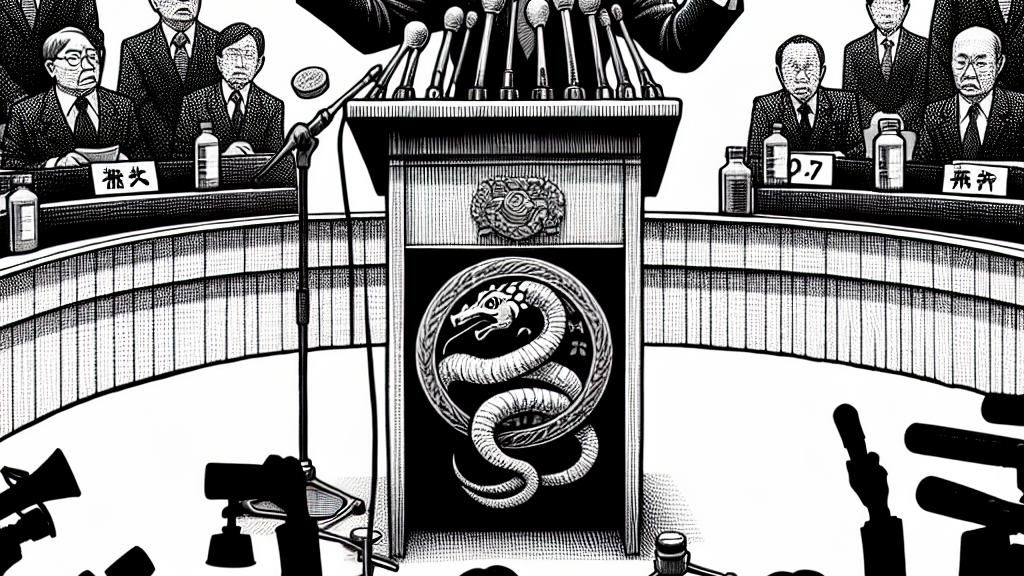Oishi Akiko Criticizes Pharmaceutical Company for Lawsuit Against Opposition Politician
Overview
- Oishi Akiko emphatically criticizes Meiji Seika Pharma for suing a key lawmaker, provoking widespread public concern.
- She describes the company's lawsuit as a grave threat to public trust in vaccine safety and communication.
- The heated controversy revolves around alarming allegations related to their new Recombinant Vaccine for COVID-19.

The Legal Conflict Sparks Outrage
Recently in Japan, a significant legal and ethical confrontation erupted as Oishi Akiko, a prominent member of the Reiwa Shinsengumi party, took a bold stand against Meiji Seika Pharma. This pharmaceutical giant pursued legal action against Itihiro Haraguchi, an influential lawmaker from the Constitutional Democratic Party. Haraguchi made shocking claims, alleging that their newly developed Recombinant Vaccine was linked to severe health issues, even likening it to a 'biological weapon.' In light of these accusations, Oishi passionately condemned the lawsuit, asserting that this act was not merely unacceptable, but indeed a dangerous intimidation tactic aimed at silencing critics. She argued that such legal threats could fundamentally undermine public confidence in essential health initiatives, which is critical in a time of global health crises.
Political Implications: A Call for Transparency
The political ramifications of this lawsuit extend far beyond the courtroom. Oishi's remarks underscore the urgency of rebuilding trust in vaccine communications during a period marked by skepticism and fear. She emphasizes that the act of suing a critic fosters a chilling environment, one where citizens may hesitate to voice legitimate concerns about vaccine safety for fear of legal retribution. This situation highlights the imperative for transparency in public health policies. If citizens cannot engage in open dialogue about vaccines, the very foundation of community trust and safety could crumble. This controversy serves as a poignant reminder that the relationship between pharmaceutical companies and public health is a delicate balance, one that requires careful navigation to ensure the well-being of society at large.
A Broader Context: Whistleblower Protections and Ethical Standards
Additionally, this lawsuit is situated within a broader trend of legal challenges facing the pharmaceutical industry in Japan. For instance, in another noteworthy case, a former employee of a different drug company filed a lawsuit after experiencing retaliation for exposing unethical practices within her workplace. This highlights a pressing issue: the need for robust protections for whistleblowers who attempt to uphold ethical standards in corporate environments. Oishi's denunciation of Meiji Seika Pharma resonates strongly with these narratives, as she calls for not just corporate accountability, but also systemic reforms that prioritize public health over profit. By establishing a culture that values ethical behavior, the pharmaceutical industry can cultivate trust and encourage those with legitimate concerns to speak out without fear of reprisal. In a world facing unprecedented health challenges, the need for transparency, ethical conduct, and strong whistleblower protections has never been more critical.

Loading...